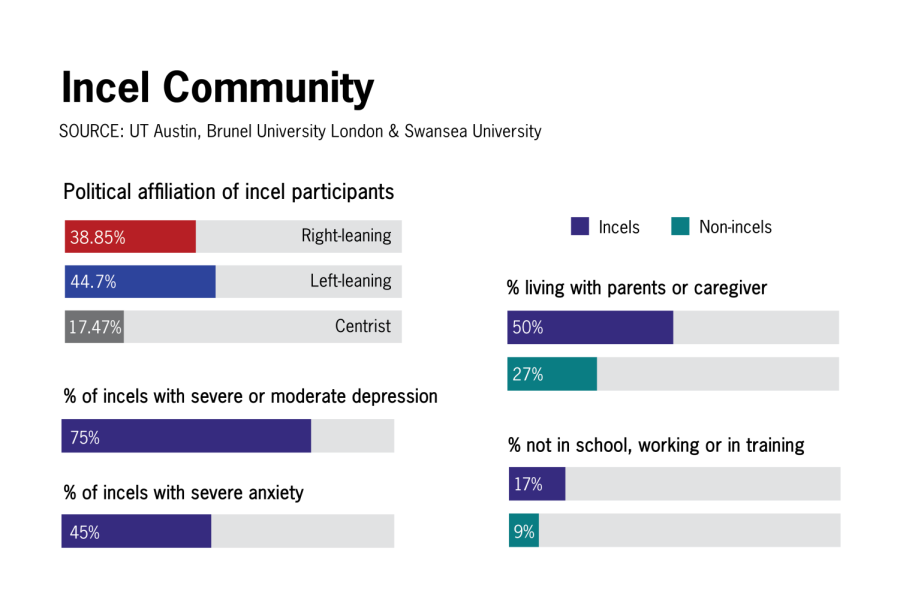New UT study reveals the mental health realities of incels
December 1, 2022
A recent UT study found involuntary celibates, colloqiually known as incels, are more likely to suffer from depression, anxiety, loneliness and poor mental health.
Lead author William Costello said he originally conducted this study as part of his Masters dissertation at Brunel University London because of the growing attraction and interest in the incel community in mainstream media.
“When I originally did the literature review for my research, I found that there were hardly any studies that included primary responses from self-identified incels themselves, with most research focusing on linguistic analyses of online rhetoric,” Ph.D student Costello said in an email.
Andrew Thomas, a senior lecturer of psychology at Swansea University and developer of the manuscript for the study, said in an email that an incel is a label built around “a shared identity and belief system around being involuntary celibate.” Costello said incels operate mostly in online communities to express misogynistic hostility and frustration.
By recruiting participants in an online survey through social media snowball sampling, a process where participants help recruit other participants, Costello in an email said the research found that “75% of incels in the study were clinically diagnosable with severe or moderate depression, and 45% with severe anxiety.” The study also found 38.85% of the incel participants classified as right-leaning, 44.70% left-leaning and 17.47% centrist.”
“As a group, they are not unusually right-wing,” Costello said in an email. “Compared to non-incels, however, they are lonelier, less likely to have social support, more likely to be suffering from anxiety and depression, less likely to be employed or in school, more likely to ruminate on past experiences of victimization and more likely to be living with their parents.”
Vania Rolon, co-author and statistics analyzer, said the research team found incels score a higher tendency for interpersonal victimhood.
“(Interpersonal victimhood) is this idea that you are a victim, that the world keeps wronging you and no one takes your struggle seriously,” Rolon said.
Along with a victim mentality, Costello said the findings suggest incels are as much a threat to themselves as others.
“Some would find it an odd idea to want to help a group they see as a threat,” Thomas said. “However, to those concerned about the harm that incels might do to society, trying to alleviate incel suffering by improving their mental health would be a good route to reducing their chances of harming themselves and others.”



